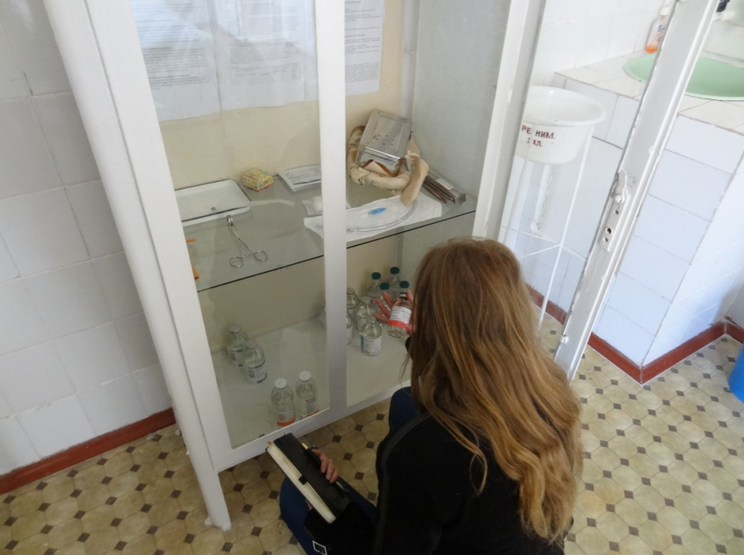Palliative patients get easier access to pain relief
Now, a general practitioner has the right to independently make decision on using opiate pain relievers for such patients, in particular.
As the Human Rights Information Centre correspondent reports, the Health Ministry of Ukraine approved the order No.494 “On some issues of acquisition, transportation, storage, release, use, and destruction of narcotic drugs, psychotropic substances and precursors in health care facilities”, which simplifies the provision of quality palliative care to the patients in the late stages of incurable disease.

According to the approved order, a general practitioner has got the right to independently make decision on using opiate pain relievers for such patients, in particular. A patient may receive pain relief medication for a period of 10-15 days. This order also simplifies the system of using the prescription forms.
“The approval of this order is the milestone event, the result of two-year cooperation between the civil servants and progressive community,” Oleh Dzysiak, chief of the State Service of Ukraine for Drug Control, notes.
Before the order was approved, the pain relief medications had been prescribed exclusively by a commission’s decision. This meant that a person with an incurable disease had to go to an oncologist to get a medication, usually to the regional center. Now, the patient’s access to pain relief has become easier.
Another Ministry’s decree No.360 canceled the territorial accountability for strict accounting forms. A patient, having received a prescription in any region of Ukraine, can now go to any pharmacy in the country. For example, only one pharmacy may sell such drugs in Kirovohrad region. Some patients from Kirovohrad region live closer to Poltava region, where the network of pharmacies is more developed, than to its regional center. Previously, the patients could not get pain relief medication in another region.
There are two ways to obtain medications. The first one is a discount prescription form, under which the cost of medications is compensated to pharmacies from the local budgets. The second way is purchase of a medication at its full price by a patient.
“According to the data of 2010, the need for pain relief medications in Ukraine was granted only in 10% of cases,” notes Kseniya Shapoval, drug policy manager in the Public Health program initiative within the International Fund “Revival.” “The approval of this order is major victory for patients and caregivers. The delivery system of regulated medications has become one of the most democratic within the post-Soviet space.”
Not only cancer patients, but also some patients with chronic noncancer pain need such medicines. Until now, the doctors used the old protocols and procedures allowing to use pain relief only in the morning and evening, while the international norms provides for pain relief every four hours.
Risks of abuse
Simplification of the system raises the issue of prevention of drug trafficking. A doctor shall be criminally liable for prescribing of these medicines. The prescription forms are strict accounting documents. The Interior Ministry has the powers to check these documents by their numbers. A patient and his family shall be also informed about the criminal liability. In addition, there is a procedure for return of the rest of medications after the death of a patient.
“The number of such criminal cases among the cases over drug trafficking is about 1%,” Kseniya Shapoval says. “I can not say that this is a sensitive issue in Ukraine.”
In general, the situation with palliative care in Ukraine is rather tense, the experts claim. There are few palliative departments in health care facilities and hospices. Their number is just 1,500 beds, while 3,500 are needed (according to the WHO). There are only six mobile palliative teams in Ukraine. We need these teams to provide humane treatment for those, who want to die at home rather than in hospital. The purchase of pain relief medications belongs to the powers of local budgets, often complaining about underinvestment. Ukraine has not sufficient number of these medications, in addition. However, the changes, stipulated in the resolution of the Cabinet of Ministers No.333, give the hope for settling the situation.














